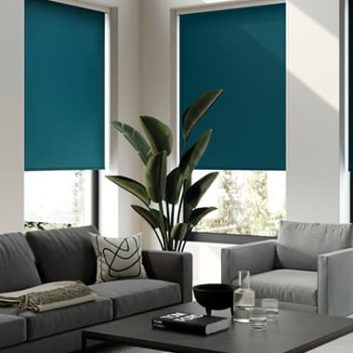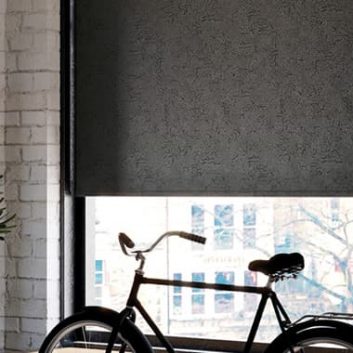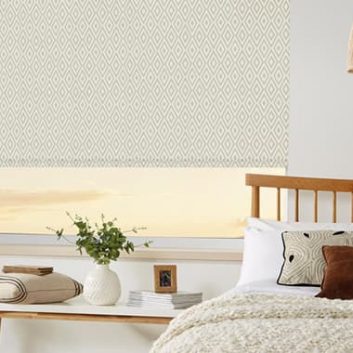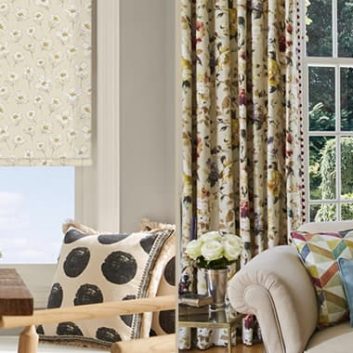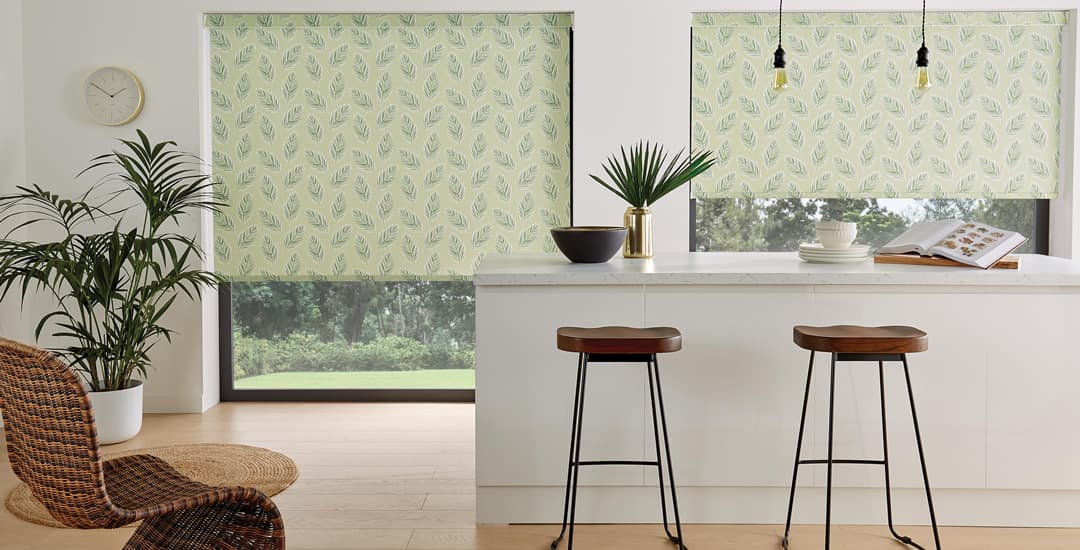
Yes, roller blinds are suitable for kitchens and they’re the most popular, as well as the most cost-effective choice of kitchen blinds overall. However, you have to ensure that you choose waterproof roller blinds for most kitchens, which are those made of either PVC or vinyl.
This blog post will tell you everything you need to know about what makes roller blinds suitable for kitchens, and why they’re so popular.
Why are roller blinds suitable for kitchens, and what makes them the most popular choice overall?
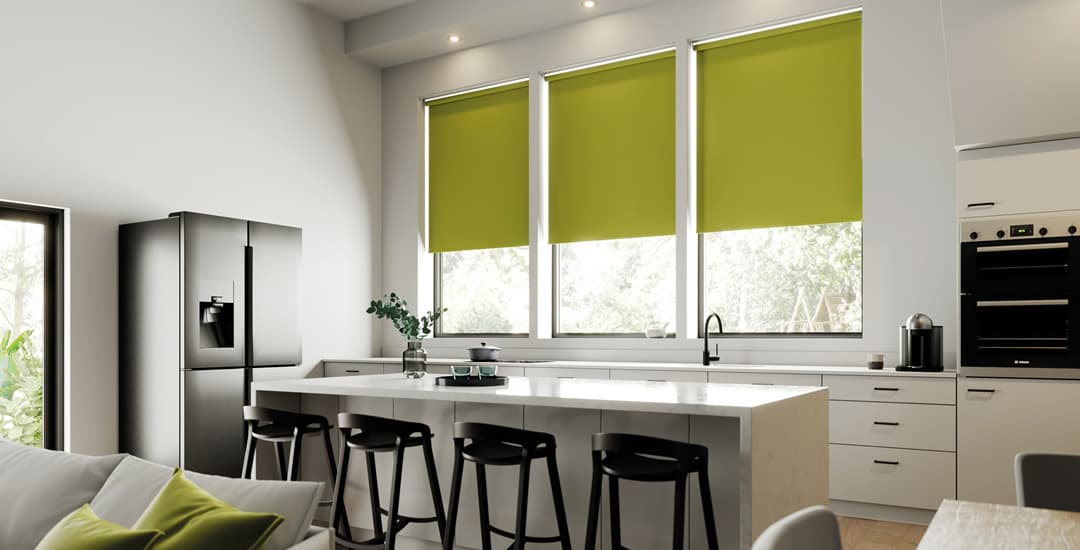
I think the main reason why roller blinds are popular for kitchens is that this is the type of blind that is available in the widest range of different colours and patterns, so whatever sort of theme or style you have for your kitchen, there will be a roller blind to suit it.
Also, roller blinds are almost always the most economical type of blinds to buy overall, which is an important consideration for many people, particularly those whose kitchens are large and airy with many windows!
Roller blinds also have the smallest footprint on the windowsill of any type of blind, which can be handy if you want to grow herbs for cooking on the windowsill or otherwise make use of that space; plus their minimalistic parts and unfussy finish is also a bonus in rooms like kitchens where mess and major clean-up operations are sometimes a factor, particularly for those with children!
It’s worth mentioning in balance that roller blinds aren’t one of the types of blinds that can be used to provide privacy without blocking the light too like slatted blinds can, but rather, roller blinds have the basic settings of open, closed, or somewhere in between.
However, because the kitchen isn’t the type of room where a need for a heightened degree of privacy tends to be a big factor (like it would be in the bathroom or bedroom) this is rarely an issue; unless perhaps you’re an experimental chef aspiring to launch the latest weird sausage flavour onto the shelves of M&S or Aldi, and industrial espionage is big in the world of bangers…
Anyway. During the day, most people have their kitchen blinds fully open to make the most of the natural light, closing the blinds when it gets dark to enable privacy from the outside world when the lights are on inside. This makes roller blinds perfectly fine for most kitchens and the privacy preferences of its users.
Are roller blinds suitable for kitchens even if they’re not the waterproof type?
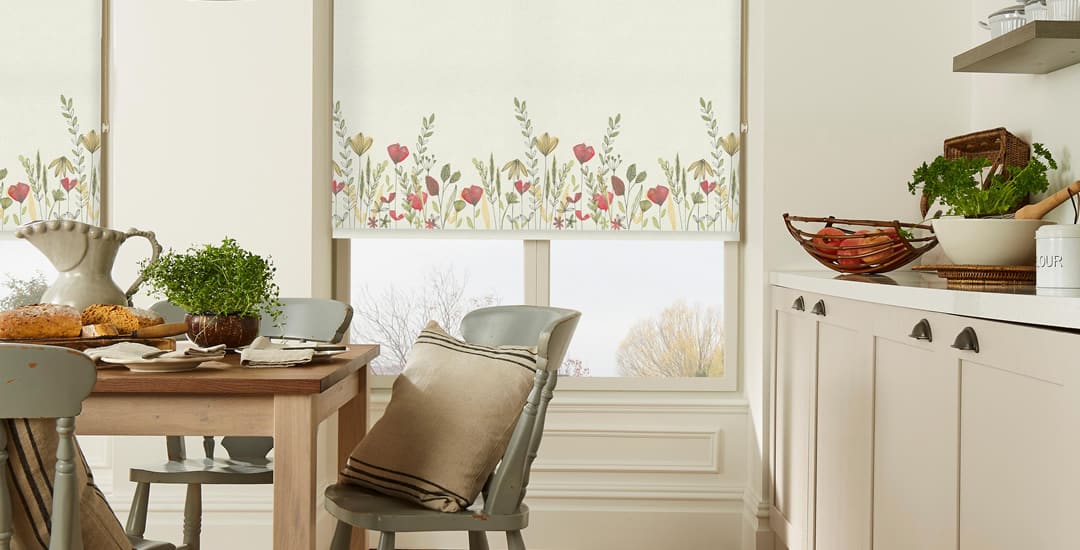
Really, you should look for waterproof roller blinds as the default for kitchens, so try to choose blinds that are. Roller blinds suitable for kitchens generally need to be able to handle steam, humidity, and potentially, direct contact with water, which are the main reasons for this guidance.
Another reason is because vaporised cooking fats can deposit a greasy film on the blind over time, which is easy to wipe clean on a waterproof blind but will possibly herald the death of a fabric one!
Waterproof roller blinds don’t pick up cooking smells and hang onto them like porous fabrics do either, and so they reduce the chances of contributing to a lingering smell of chip fat or curry or kippers or anything else that you like eating more than you like smelling.
Roller blinds that are made of other fabrics, most commonly polyester, are fine for bedrooms, living rooms, and other rooms where steam and possibly direct contact with water won’t be a factor, but may not be suitable for kitchens.
Are non-waterproof roller blinds for the kitchen a viable option for me?
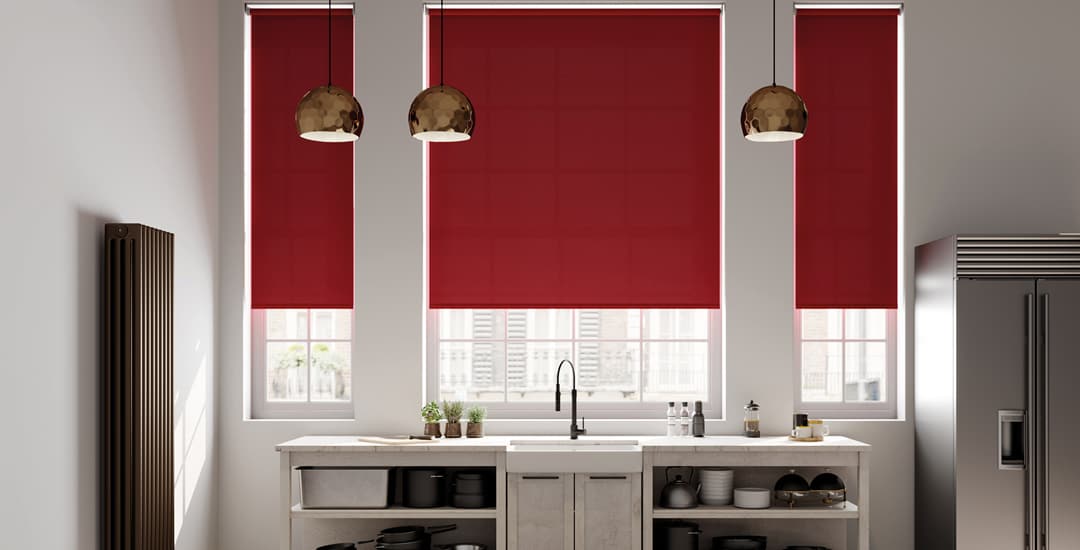
The “not usually” caveat is worth circling back to, because a reasonable number of people do buy polyester roller blinds for their kitchens and don’t have any problems; almost always people whose kitchens are either really well ventilated and/or in which they don’t do a lot of the sort of cooking that generates high levels of steam and humidity regularly.
Given that my idea of cooking starts with booting up the Just Eat app, I can tell you with certainty that if your diet is largely takeaway-menu-oriented, you won’t have any problems. The same applies if you’re big on salad, sandwiches, and even just oven cooking rather than hob cooking, and you don’t use the kettle much or have the kettle some way from the roller blind and in a generally well-ventilated space.
Also, whilst our polyester roller blinds aren’t waterproof, polyester is still a fairly resilient fabric that doesn’t tend to suffer from things like colour running and staining as easily as natural fabrics like cotton will. This means that they can handle a certain (ideally, low) level of atmospheric moisture, so if you have your eye on a particular set of patterned roller blinds for a kitchen and it’s only available in polyester rather than PVC or vinyl, weigh up the various different factors in play and make a decision from there..
Just bear in mind in closing the fact that a polyester roller blind will tend to pick up cooking odours eventually, and cannot be washed to remove them effectively when it does (and Febreeze will only take you so far)!

